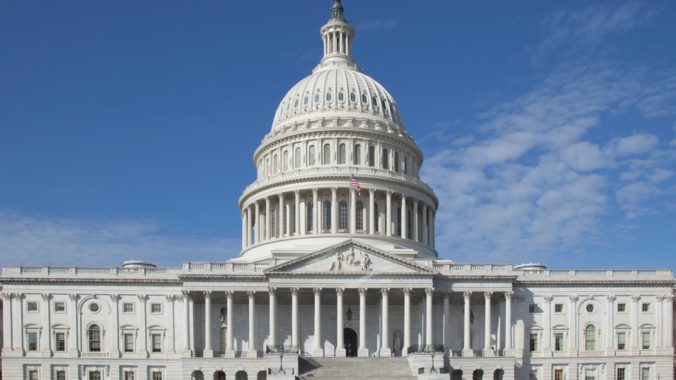LISTEN ON SOUNDCLOUD:
Congressional Gridlock
Probably every resident of a large city has experienced gridlocked traffic. The traffic lights in front of you are green. Yet you can’t move because your path is blocked by cars stuck in the intersection because their path is blocked by a red light. By the time those cars have cleared the intersection, your light has turned red, so you sit there caught in gridlock.
Traffic gridlock is real and most of us have experienced, some of us regularly. The term gridlock has also been applied to Congress, and with increasing regularity over the past few decades. Some imaginative observers have even developed measures of gridlock. One measure with some intuitive plausibility is a ratio between the pieces of legislation enacted and the pieces that were introduced. Gridlock thus becomes synonymous with unfinished business or unenacted legislation.
When faced with gridlock, whether of traffic or of legislation, the normal human response is to decry the gridlock and to seek to overcome it. Just how this might be done depends on one’s political agenda, about which many possibilities exist. One agenda might try to reduce gridlock by pricing the use of roads during periods of peak congestion, which would reduce the volume of traffic. A quite different agenda might try to create subsidized systems of mass transit, which would increase budgetary requirements. Regardless of one’s agenda, one notable thing about gridlocked traffic is that all drivers agree that sitting in traffic is a waste of time and that they would prefer to arrive more quickly at their destinations.
This situation does not pertain to Congressional gridlock. Without doubt, there are people who would like to see legislation flow more quickly through Congress. Equally without doubt, however, there are also people who would like to see the flow of legislation slow down, and even stop in some cases. How one appraises and reacts to gridlock depends to some significant extent on what one thinks is the proper scope of government in society.
In this respect, the American Constitution established a system of divided and separated governmental powers that created obstacles to the enactment of legislation. Gridlock was built into our constitutional system. That built-in gridlock has been intensified by the Progressivist transformation of the federal government that has been underway over the past century or so.
Through this transformation, the federal government has shifted increasingly from producing real goods and services to transferring income among people. When the federal government was especially heavily devoted to doing such things as providing military services, keeping rivers and harbors navigable, and providing interstate highways, we faced a situation where most people thought those services were reasonable things for the federal government to do even if there were disagreements over budgetary details. Within this setting, there was much scope for compromise among members of Congress, which facilitated enacting budgets in timely fashion.
Rarely are budgets enacted in timely fashion these days. The last time Congress did so was 1996. Since then, continuing resolutions along with occasional shutdowns have become the standard mode of operation. Even worse, Congress has now placed over two-thirds of the budget on automatic pilot. Congress has thus reduced the items with which it must deal, and yet performs ever more poorly with respect to that reduced menu of items.
Through the progressivist transformation, the federal government has become increasingly dominated by programs to redistribute income and wealth. This shift in the pattern of governmental activity shrinks the scope for compromise, increasing gridlock in the process. As the federal government has moved away from supplying real goods and services that most people probably value to some degree and toward taxing some people for the benefit of others, gridlock is the natural product of the clash between those who are forced to pay and those who would benefit. And do not forget in this respect that approximately half the population is free of liability under the personal income tax, making government costless to the extent it is financed by the personal income tax.
To be sure, we should always expect some gridlock inside political processes, as was recognized at the time of the American Constitutional founding. Our present political system, however, seems to have created a significant cleavage between those who would like to be left alone by the federal government to pursue their peaceful dreams and projects and those who seek to receive support at someone else’s expense.
Yet we must recognize that governments can’t create wealth. All they can do is take and redistribute wealth that other people have created. This property of government was recognized at the time of our Constitutional founding, and we need to recapture that founding wisdom. This does not entail streamlining government to reduce gridlock, but rather requires restoring our Constitutional system of free enterprise and limited government.
Richard E. Wagner is Holbert Harris Professor of Economics at George Mason University.




